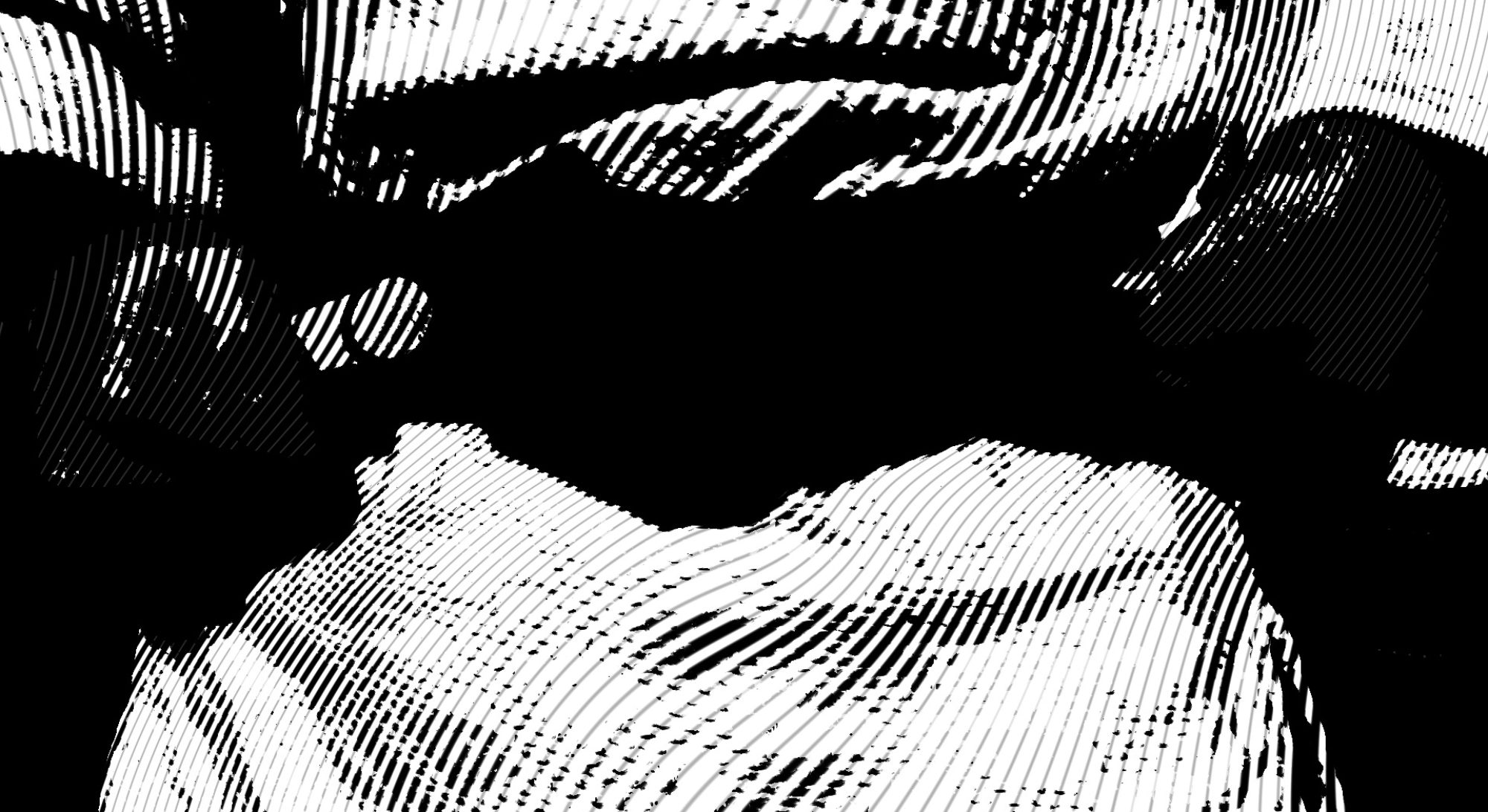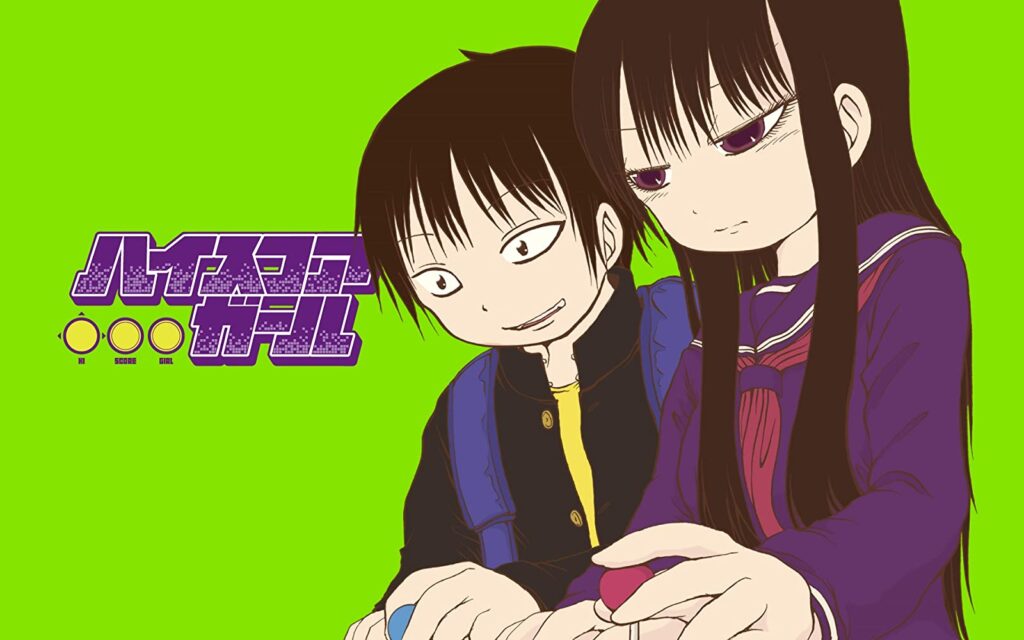
Hi Score Girl a tv series on mini 15-20 minute episode I was not expecting to like but ended up watching the full first season of. Really this autoethnographic experience became more about Japanese video games culture then Japanese culture in general. This anime follow Haruo Yaguchi as he goes through school trying to play as many video games as possible with as few negative consequences as possible. Haruo is very good at street fighter and quite often is obvious to other things:

https://twitter.com/JZahra98/status/1298427523043168256
The fact that the show had been dubbed into English but the subtitles had been done directly from the Japanese and were not a word for word reflection of the the dubbed words made for some interesting discrepancies.
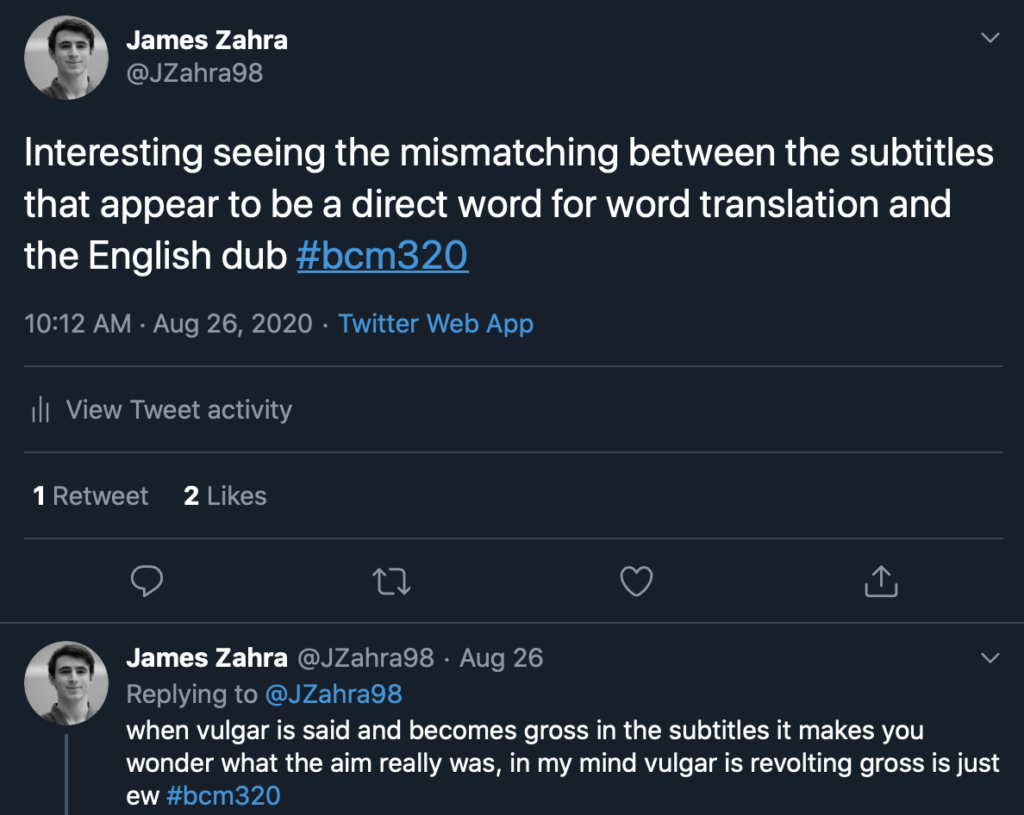
This is definitely something worth noticing as part of the experience, but something that shouldn’t detract from the study of culture through this show as most of the cultural indicators are non verbal especially when you don’t understand the original language. Also worth noting in this regard the main female becoming love interest Akira Ono is entirely non verbal for all of the show I have watched.
This show generally consists of Haruos internal monologue and sounds and conversations he participates in. Each episode generally covers a school break period or a large portion of a school year. The shows explain time progressions with significant gaming events and sometimes US political announcements changes. The shows demonstrates a wide variety of games that the characters dabble in but the core story line is following the fighting game scene and character progression and prowess in each of these games.
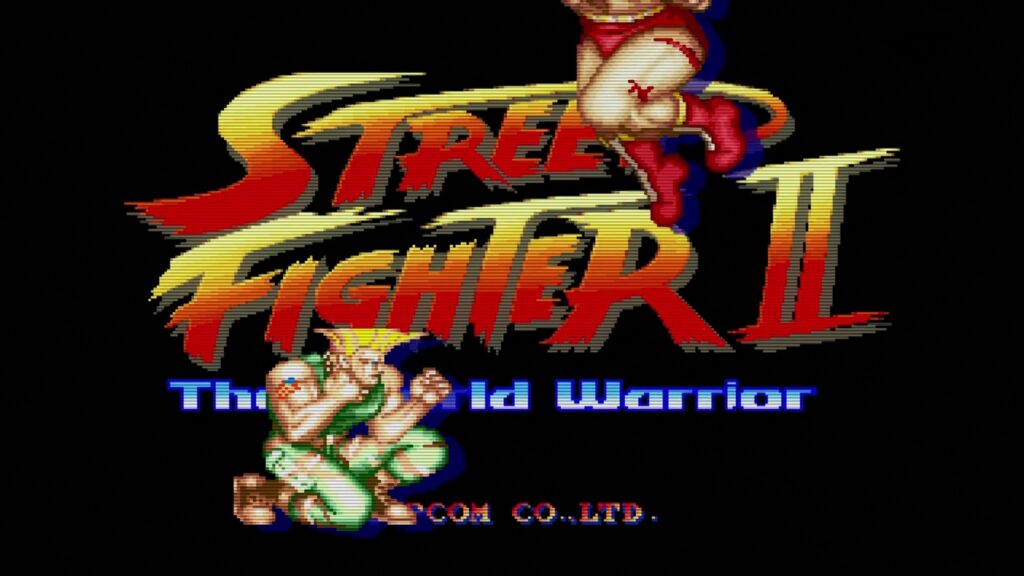
While I have played thousands of hours of games on my computer and not all that much on consoles due to controllers being not so great to use with 7 fingers and arcades not really being the thing to do with my friends growing up I don’t have all that much street fighter experience.
My own personal experience of Japanese culture is very disciplined meticulously routined training and education (eg Monday training session identical training program every Monday) with little room for error while coaches/teachers are watch and the kid of mucking around and jokes you can expect from any teenager when their is no authoritative figures around. This show takes a look at entirely different element of Japanese culture I have not explored really only knowing people and having experience Japanese judo culture. There are definitely crossovers to what I had expected in the school scene but it was interesting seeing new elements of Japanese culture.
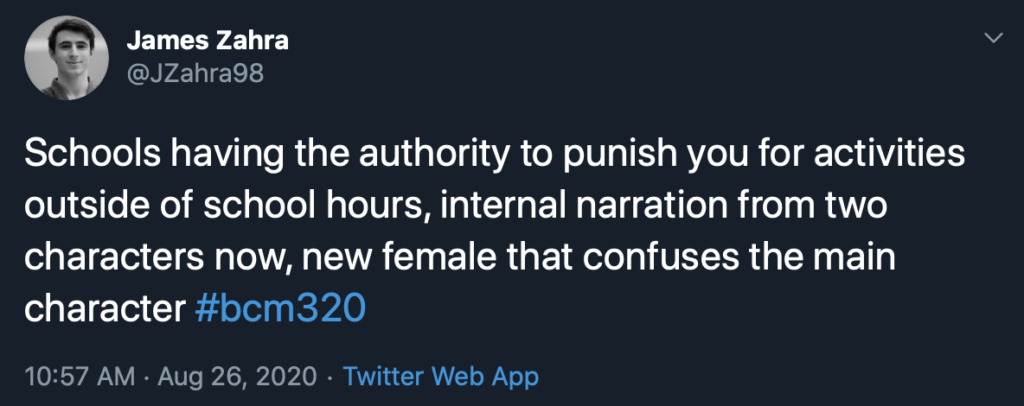
The fact that schools had people roaming around to ensure students weren’t participating in ‘unsavoury activities’ which included playing video games was interesting and added almost another level to what I had seen before. However in spite of this we see Haruo continually willing to push boundaries to play the games he wants to is much as possible just like I did as a kid. What’s probably less different then I thought as a kid who was always reasonably academically smart my grades didn’t suffer for my lack of care so my parents didn’t mind me playing games as long as I continued to stay up to date.
The largest cultural difference I observe looking back on it is how free the kids are to do their own thing , with the general exception of Akira all the other characters in the holidays and breaks at ~11 years old where wandering around and organising their own gatherings and activities wherever they wanted to go. I am unsure however if this is just to facilitate the nostalgia element of the show. The show is clearly aimed at people who nostalgic to the games showcased throughout the show, even without looking at the show its rating is a good indicator its not meant for people the same age as these fast ageing and phasing characters as they experience games culture and ignore 90% of the rest of these kids lives. Like Haruos best friend clearly being Kotaro but we have no background as to how that happened really just that the go to the same school and hang out together at the gaming arcades.
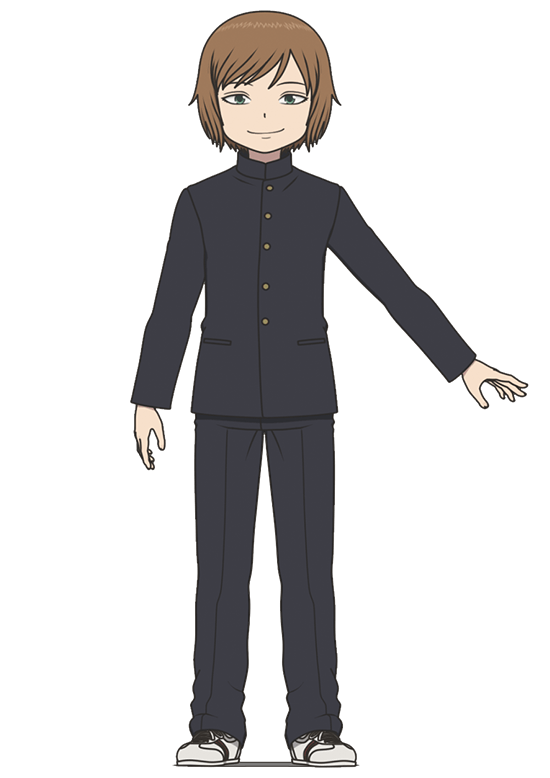
In this show the only time Haruo gives up games is when he studies his brains out trying to get into the same high school as Akira, ultimately falling short but still making it into his backup school with Kotaro. This allows the show to explain the cultural phenomena of being disconnected and how quickly the Japanese fighting game culture moved from one game to the next as now Haruo’s skills were greatly deteriorated and he is basically relearning everything he has forgotten showcasing what I would mostly have expected as core to the Japanese culture of working hard to achieve your goals and if you stop working you will fall behind. As lots of people through judo Japanese and not understand there’s always someone else working hard and if you don’t strive to work harder you will fall behind as Haruo does here both in school and games after his split focus.
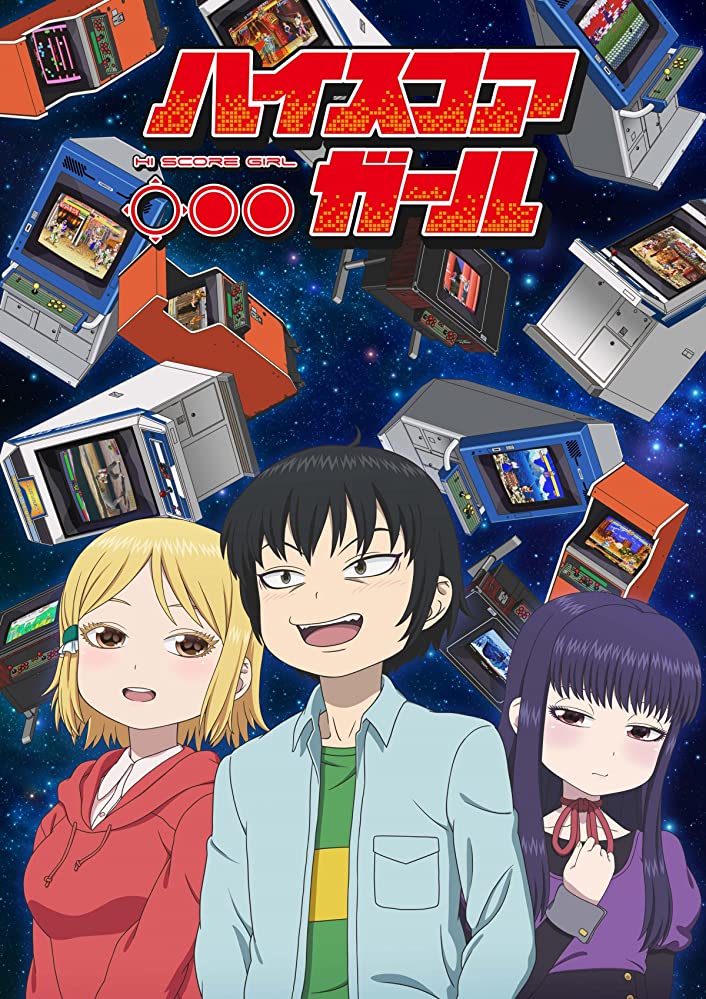
The only other thing I have to add from this experience is how it was cool to see Akira having just as much of an impact as anyone else in the show and normally more than everyone else on Haruo without ever speaking a word. It makes me wonder if it is common for someone people to not speak much and this has been exaggerated here to emphasis the fact they can still say heaps without saying a word.
Overall it was interesting to see a new less disciplined traditionally disciplined side to a Japanese culture but also still see those elements as characters commit themselves to things whether it is bettering themselves at schoolwork of gaming they find every way to optimise themselves and become their own biggest critics which I think really resonates my past experience of high performing Japanese athletes. However maybe that’s me putting my ideas onto these characters but I think it really is just a new application of many of the typically Japanese routines I have seen and experienced in the past through Judo.
